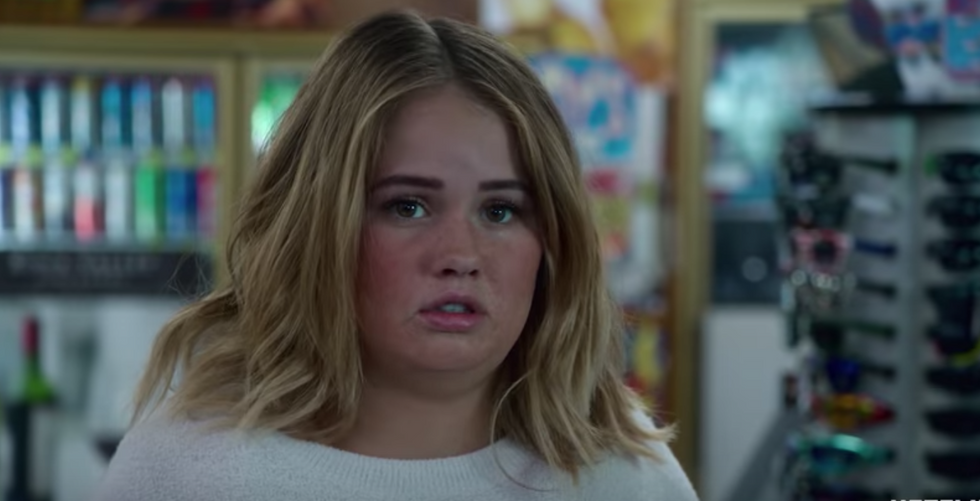If you have been on social media lately, you have probably noticed a new wave of body positive posts, ads, and pictures. Plus-size models like Ashley Graham and Tess Holliday grace billboards and magazines. It would seem that we are moving away from shamming people for their weight, and even celebrating the variety and beauty of all bodies.
Yet, film and television have not caught up.
Recently, Netflix released a trailer for a new show called "Insatiable." It stars Debby Ryan who begins the series as an overweight and bullied high schooler. She eventually loses weight, and therefore, becomes attractive to the rest of the school. Only after her dramatic weight-loss can she seek some twisted revenge on her classmates.
Some of the stars of the show claim that the show addresses fat-shaming, but other people disagree. The trailer has incited outrage across the internet. A petition on change.org was quickly shared with the goal to stop the release of the show. So far, over 213,000 people have signed with the hope to reach a total of 300,000 signatures.
Organizer Florence Given stated, "For so long, the narrative has told women and young, impressionable girls that in order to be popular, to have friends, to be desirable for the male gaze, and, to some extent, be a worthy human…that we must be thin." Stories where weight-loss is the only thing that makes a character feel capable and attractive perpetuate this idea.
If the creators of the show were trying to shed some light on the plight of plus-sized people, they wouldn't have put a thin actress in a fat suit and then have everyone point and laugh. It is blatantly fatphobic. Series like this play into or represent the worst fears and the deepest desires of people who are not comfortable in their body, regardless of size.
Anyone who spends a significant part of there time disliking what they see in the mirror wishes that one day they could wake up and suddenly look like a slim Debby Ryan. It is this exact desire that feeds eating disorders. Rather than providing the main character that gives people hope, "Insatiable" has created one that shames them for their "before picture" bodies. Our bodies aren't for revenge, but they're for moving, laughing, and living a healthy happy life in - something that can be done at any size.
A productive story would have had a young woman who is the same size as most Americans (and still labeled "plus-sized") who learns to love herself and doesn't have to change in order to do so. Weight should not be a plot point.
There are more and more body types being portrayed in film and television, but many of these characters have to make a joke out of their size. Fat has become a punch line.
Fat Amy in "Pitch Perfect" is brave for reclaiming the word "fat," however her whole character revolves around her being heavy and lazy. Many of her one-liners are simply her making a dig at herself or having the confidence of a slim person, which is then seen as funny.
"The DUFF" is a movie about how petite Mae Whitman is somehow the designated ugly, fat friend of her school. Whitman is anything but fat or ugly. If we are meant to believe she is unattractive, what does that say about our bodies?
The same goes for men, too. When was the last time you saw a Jack Black movie where his belly wasn't meant to get a laugh out of the audience?
"Insatiable" is not the first show of its kind, but hopefully, it is one of the last. Body shamming comes in many forms and has become a nasty habit in American culture. Masquerading as body-positive then undermining the confidence of whole groups of people is cruel and disrespectful to those who struggle with accepting their own bodies. Series like this are making a cheap and shameless grab for the body-positive movement without taking the time to sympathize and understand. Netflix has not yet canceled the release of the series for fear of losing money. I would argue that the self-worth of generations of people is much more valuable than a lost profit.



















